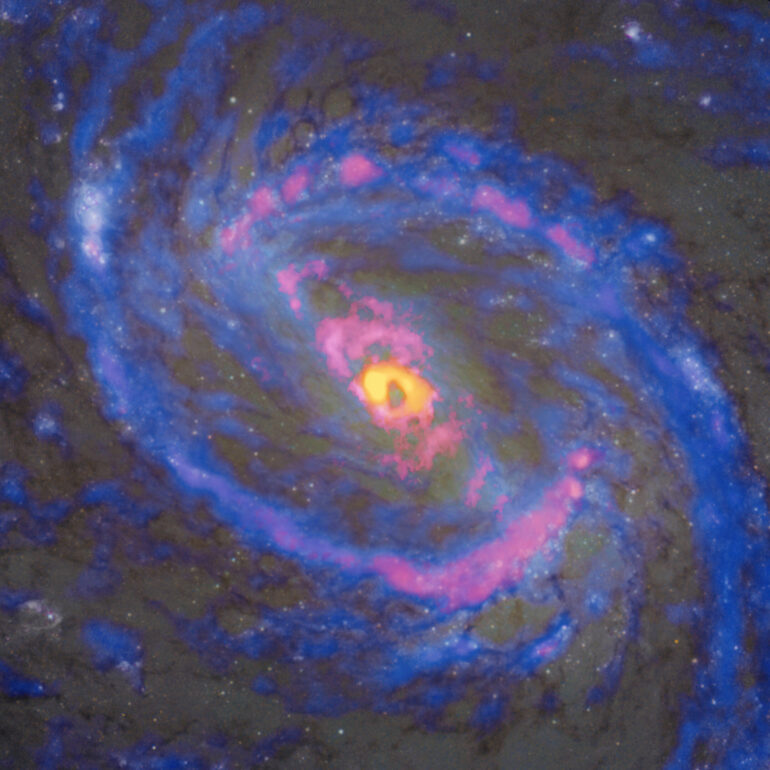New research shows that the supermassive black hole at the center of a galaxy can have a direct impact on the chemical distribution of the host galaxy. This provides another piece of the puzzle for understanding how galaxies evolve.
It is well known that active supermassive black holes can produce major changes their host galaxies by heating up and removing the interstellar gas in the galaxy. But the compact sizes of black holes, the long distances from Earth, and obscuration by dust in the galaxies have made it difficult to measure the chemical composition distribution of the gas around an active supermassive black hole.
In this study, an international team of researchers led by Toshiki Saito at the National Astronomical Observatory of Japan and Taku Nakajima at Nagoya University used ALMA (Atacama Large Millimeter/submillimeter Array) to observe the central region of Messier 77 located 51.4 million light-years away in the direction of the constellation Cetus. Messier 77 is a relatively nearby example of a galaxy hosting an active supermassive black hole. Their work has been published in The Astrophysical Journal.
Thanks to ALMA’s high spatial resolution and a new machine learning analysis technique, the team was able to map the distribution of 23 molecules. This is the first survey to objectively depict the distribution of all detected molecules through unbiased observations.
The results show that along the path of the bipolar jets emanating near the black hole, molecules commonly found in galaxies such as carbon monoxide (CO) seem to break down, while the concentrations of distinctive molecules such as an isomer of HCN and the cyanide radical (CN) increase.
This is direct evidence that supermassive black holes affect not only the large-scale structure, but also the chemical composition of their host galaxies.
More information:
Taku Nakajima et al, Molecular Abundance of the Circumnuclear Region Surrounding an Active Galactic Nucleus in NGC 1068 Based on an Imaging Line Survey in the 3 mm Band with ALMA, The Astrophysical Journal (2023). DOI: 10.3847/1538-4357/ace4c7
Toshiki Saito et al, AGN-driven Cold Gas Outflow of NGC 1068 Characterized by Dissociation-sensitive Molecules, The Astrophysical Journal (2022). DOI: 10.3847/1538-4357/ac80ff
Provided by
National Astronomical Observatory of Japan
Citation:
Supermassive black holes affect the chemical composition of their host galaxies, research shows (2023, September 15)



